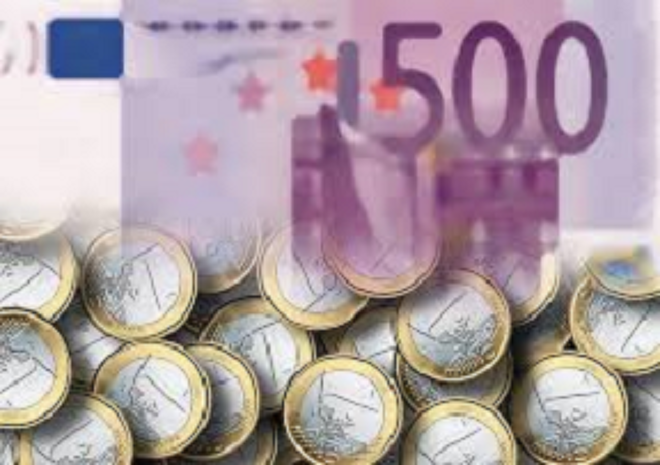Advertisement
Advertisement
Annual Inflation up to 0.1% in the Euro Area
By:
Figures from Eurostat have revealed that inflation for the Euro area had increased by 0.1% for October, climbing from minus 0.1% in September. Although
Figures from Eurostat have revealed that inflation for the Euro area had increased by 0.1% for October, climbing from minus 0.1% in September.
Although this was still down from the 0.4% that was recorded for the Euro area inflation rate a year ago.
Across the whole of the European Union, inflation was 0.0%, like the Euro area this was a slender month on month gain.
The inflation figure for September was 0.1%,, and a year ago, inflation reached 0.5%.
Negative annual rates of inflation were found in 13 member states, with Cyprus the worst effected with an reduction 1.8%.
They were followed by worrying inflation figures for Romania with a minus 1.4% rate, then by Bulgaria -1.2%, Slovenia -1.1%, and Spain -0.9%.
Malta reported the highest annual rate for the month, with an increase of 1.6%, Belgium were the next highest with 1.2%.
There was also comparatively positive inflation figures for Sweden on 0.9%, while Austria and Portugal both posted a 0.7% rise.
Compared to September last year, annual inflation fell in four Member States, remained stable in seven, and rose in sixteen.
The most influential upward impacts on inflation, arrived from vegetables with a positive increase in prices of 0.14%. Restaurants and cafés had an inflation rate of 0.10%, and fruit 0.07%.
In contrast, energy prices predictably had the most negative impact on inflation, fuels for transport spiralled down to -0.68 pp, heating oil -0.22%, and gas -0.09%.
Eurostat have revised the latest figures upwards from the flash estimate that was released at the end of October, which unveiled an inflation rate of zero for the euro area.
In a speech last week European Central Bank (ECB)President Mario Draghi said that there was little turnaround for core inflation, and trends were continuing to weigh inflation down.
At its December meeting, the ECB is widely expected to increase monetary stimulus, to support the government bond buying programme it began in March this year.
Euro Continues to Fall in the Aftermath of Paris Attacks
The euro is continuing to sink, as the French government issued a state of emergency following the atrocities last Friday.
In the past 24 hours, the euro has fallen to the US dollar, from 1.075 to 1.066. Against the UK pound the euro currently buys £0.701, a reduction from 0.708 yesterday.
Its believed by many analysts that the effect on the tourism industry, and the perceived increased threat from terror in European countries, have had a large bearing on the euro’s fall.
Employment High Record Reached in Germany
The German Federal Statistics Office have unveiled the highest employment levels since reunification.
There are now 43.2 million employed in Germany, compared to the third quarter a year ago, this represents an increase of 343,000 new jobs.
The largest absolute employment gains were recorded for business services, with an extra 138,000 people in work.
This was followed by public services, education, health, which all increased employment by 134,000. And trade, transport, accommodation, and food service all recorded a rise of 83,000 people working in their industries.
Despite the good news on employment, Germany released figures last week of only moderate economic growth of 0.3% for the third quarter this year.
About the Author
Peter Tabernerauthor
Advertisement
